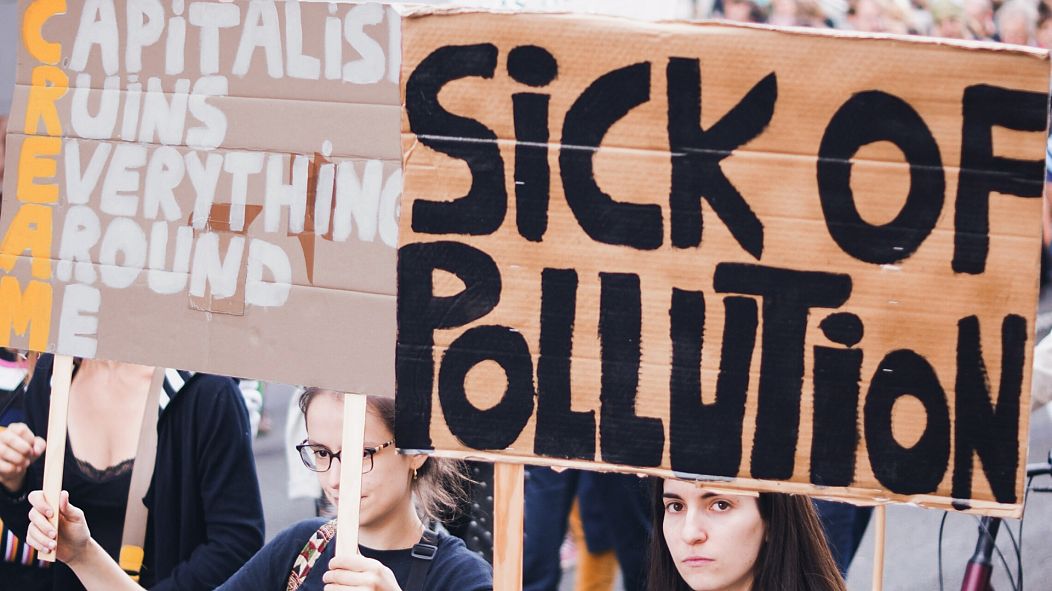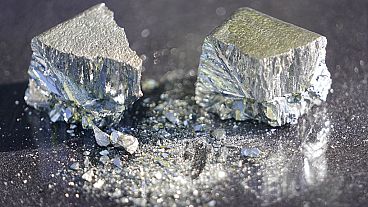Our health and the health of the planet are more closely linked than you might think.
Since the pandemic began, pollution levels have dropped, animals are returning to areas they had previously abandoned and more people have taken to travelling on foot and by bicycle. Although short-lived, we have already seen some of the effects changing our behaviour can have on our own lives and on the natural world.
For many, these unexpected positives have brought a new understanding about the relationship between the environment and our health.
So could human health and planetary health be more closely linked than we think? We’ve seen how problems like deforestation and rising temperatures have increased the risk of extinction for all kinds of species. But, as part of the global ecosystem, humans aren’t immune from the effects of climate change either.
Extreme climates pose a threat to us by affecting things like water supplies, air quality and food production. In 2018 the World Health Organisation estimated that global warming would cause an additional 250,000 deaths between 2030 and 2050.
But just how is the destruction of the environment making us sick?
Unclean air
Nine out of ten people in the world breathe polluted air with an estimated 7 million dying every year from conditions associated with exposure to microscopic particulates. As a result of burning unclean fuels like coal, diesel, kerosene, and even biofuel and trash, these very small pollutants find their way into our lungs. Alongside methane emissions from industrial agriculture and oil and gas production, human actions are making the air we breathe unclean. Air pollution can lead to a variety of health problems like lung cancer, strokes and heart disease.
More than 90 per cent of deaths related to air pollution occur in low and middle income countries - but high income countries are not immune. A study in 2019 found that air pollution causes an extra 800,000 deaths a year in Europe. “To put this into perspective, this means that air pollution causes more extra deaths a year than tobacco smoking, which the World Health Organization estimates was responsible for an extra 7.2 million deaths in 2015,” co-author of the study, Professor Thomas Münzel told EurekAlert!.
Diseases passed between animals and humans
More than 70 per cent of emerging diseases affecting people originated in wildlife and domestic animals. The UN Environment Programme lists an increased amount of close contact between animals and humans as the most significant risk for zoonotic diseases.
By changing the nature of vital habitats through human actions like agriculture and industry, the ‘buffer zones’ which separate us from wildlife have been seriously reduced. A statement by experts from the Intergovernmental Science-Policy Platform on Biodiversity and Ecosystem Services (IPBES) explains that a system which prizes economic growth over the protection of natural resources has created a “perfect storm” for diseases to spread from wildlife to humans.
That means taking care of the environment through stronger and more stringently enforced regulations will be essential post-pandemic, say the experts.
Limited access to nutritious food
Good health is reliant on a balanced diet that supports your immune system. The WHO says that because of its influence on food production, biodiversity is directly linked to nutrition.
A wider variety of species helps soil to remain productive for longer and provides a resource for discovering new plants, livestock and marine species that can be harvested for food.
But food security isn’t just about not having enough. Where 800 million people are facing the risk of food shortages, 2.1 billion are obese or overweight. Most of our energy needs are being met by just three crops; rice, wheat and maize. Much of this ends up as highly processed items like bread or is turned into ingredients including sweeteners in confectionery. Unfortunately, our highly industrialised, intensive food production system makes nutritionally poor food cheap and easily available.
Destroying natural sources of medicine
Changes in habitat due to agriculture, climate change and overharvesting are eating away at environments rich in biodiversity. This is a problem because these areas are often where the next big medical breakthroughs are found, deriving from natural sources. In the US nearly 80 per cent of leading prescription drugs are based on natural sources and many of these are particularly important in the treatment of cancer.
With natural resources in rapid decline, we could be losing important medicinal species before we even discover them.
Millions of people worldwide also rely on traditional and non-formal sources of medicine collected from the natural environment for their healthcare. In some countries, these medicinal plants are an essential part of healthcare systems. Loss of species vital for these traditional remedies would reduce the treatment options available to billions.
A shortage of clean water
To keep ourselves clean and well hydrated, the average person uses up to 50 litres of water a day. If we continue using and polluting it at the current rate, more than two-thirds of the world’s population could be living in areas with water stress by 2025, says the UN. Already, 1.8 billion people are at risk of contracting diseases linked to unclean drinking water.
“Currently there are 844 million people – one in nine of the world’s population – who do not have clean water close to home,” says Jonathan Farr, Water Aid’s Senior Policy Analyst, in response to the release of the United Nations World Water Development report. “Others face an unreliable supply of water because agriculture, industry or wealthier sections of society are able to take more than their fair share of water.”
The World Health Organisation has encouraged regular hand washing throughout the pandemic as a way of controlling the spread of the virus but, without access to basic handwashing facilities, millions of people are unable to follow this advice. In a survey of 42 countries, less than half the population had access to basic soap and water in their homes.
The covid-19 crisis has brought the global water crisis to the fore, highlighting the urgency of making sure that everyone has access to clean supply.
You can find some more of the ways environmentally damaging behaviour is putting global health at risk on the UNEP website.
But it’s not all bad news, experts predict a green recovery
Although irresponsible behaviour may be increasing our chances of getting sick, our recovery on the other side of the pandemic could provide an opportunity for systemic change.
The idea of a ‘green recovery’’ already has the support of a significant number of Europeans. 1.2 million people have joined an appeal for the EU to launch “the biggest green investment plan the world has ever seen”. The Green10 coalition, made up of the ten largest environmental organisations in Europe, has called for billions in investment for solutions like widespread use of renewable energy, restoration of natural habitats and the greening of agricultural practices. All of which will help to tackle the effects of climate change impacting global health.
“The new budget must reflect the need to save resources, cut pollution and fight climate breakdown,” says Patrick ten Brink, EU policy director for the European Environmental Bureau. “Only by restoring a healthy balance between people and nature can we prevent future outbreaks and their impact on society.”






